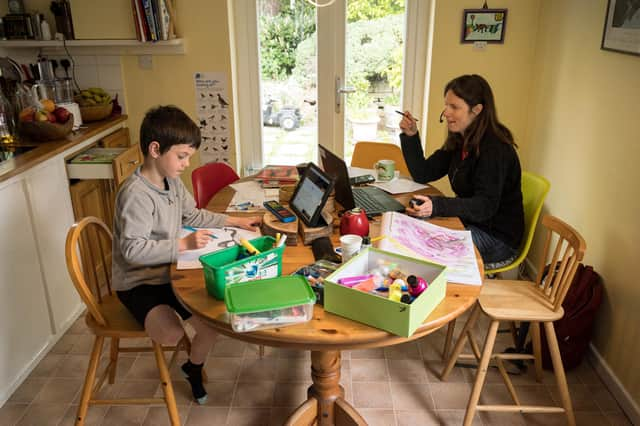Working from home versus the office: Why a hybrid approach is the way forward – Stephen Jardine


Presumably we have no such challenges here. One night last week all the lights were burning bright at Scottish Government HQ at Edinburgh’s Victoria Quay.
Amid a climate emergency and soaring energy costs that must indicate all the mandarins are back at their desks and working late. Or someone forgot to switch the lights off in 2020.
Advertisement
Hide AdAdvertisement
Hide AdThe fact of the matter is that the end of the advice to work from home has sparked no great rush to return to the office.
Edinburgh City Council’s website tells staff “the Scottish Government’s advice remains that people should continue to work from home wherever possible”. That’s no longer the case. Current official advice is “to encourage employers to facilitate hybrid and flexible working”
This is particularly galling for those in frontline jobs who’ve had no opportunity to work from home. If you are a doctor, nurse, supermarket or construction worker, doing your job in your pyjamas and catching up on a box set at lunchtime simply hasn’t been an option.
In the private sector, the return to office working has been approached more vigorously, presumably driven by the profit motive. However in the public sector, the journey back has been much slower. But is that a bad thing?
The pandemic has been the biggest shake-up to working life any of us have ever seen. It’s also provided an opportunity to reappraise how we work and the role employment plays in our lives.
I spent ten years travelling from Edinburgh to Glasgow for work. Stuck on a slow train one day, I calculated how much time I’d spent commuting, then quit. Life really is too short for that.
The sheer wasted time spent travelling to an office to do work that could be done just as well from home, alongside the need to cut journeys to save the planet, means a review of our working lives was long overdue.
But that can’t be at the expense of efficiency or productivity. The DVLA is still battling a huge backlog of work after it was revealed hundreds of staff had sat at home on full pay doing nothing during the pandemic.
Advertisement
Hide AdAdvertisement
Hide AdElsewhere the virus is providing cover for customer service levels that are simply unacceptable. How many times have you heard a recorded message telling you the waiting time for your call to be answered has been extended “because of the pandemic”?
A survey for the UK Institute of Customer Service showed a quarter of those questioned believed Covid was just being used as a blanket excuse.
Every employer has a responsibility to keep their staff safe. Two years ago, home working was the sensible thing to do but as we emerge from the pandemic, a hybrid approach has to be the sensible way forward, especially given the need to ensure city centre businesses survive.
As most people return to the workplace in some form, patience with those dragging out 100 per cent home working will grow increasingly thin and, for employers using it as an excuse for bad service, it has already run out.
Comments
Want to join the conversation? Please or to comment on this article.
